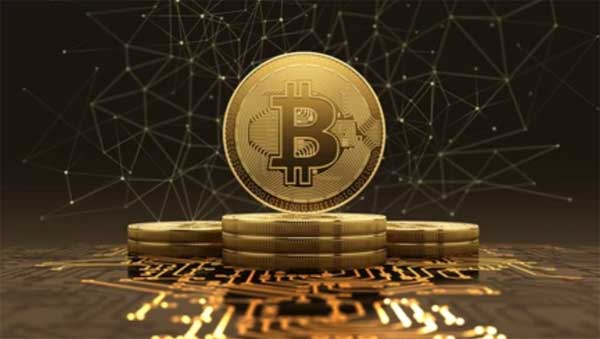Bitcoin as a Means of Inflation
By Space Coast Daily // March 24, 2022

Historically, people often sought refuge in gold in times of inflation. Paper money is virtually free and unlimited to create, but gold is scarce and expensive to mine. It is not easy to make more of it, which protects the economic value. If you are a Bitcoin investor you must know these tax tips for Bitcoin traders.
If the demand for gold rises, the supply on the market cannot simply grow with it. After all, the inflation of the gold supply is limited to the production capacity. Therefore, if the inflation of money is greater than that of gold, then gold holds proportionally – at least in theory – better value than money. Because of this property, gold is sometimes an economic haven, and if its popularity increases, this can lead to additional price increases.
Today there is also bitcoin. It is sometimes called ‘digital gold’ because it has similar properties. But unfortunately, Bitcoin is also scarce and expensive to produce, and the production capacity of bitcoin miners is also minimal.
Is Bitcoin better than gold?
Proponents think bitcoin is even better than gold. Gold can be mined deeper if the gold price is high enough, and there is always more to be found somewhere. On the other hand, Bitcoin is limited to an absolute maximum of 21 million bitcoins, and its production capacity is impossible to scale.
Indeed, inflation in the bitcoin economy is limited by math immutably enshrined in the code. Miners can mine 6.25 BTC per block (about once every ten minutes), which decreases by half every four years until inflation in the bitcoin economy is finally zero around the year 2140. Because of the decentralized nature of Bitcoin, nobody can change that, and that provides an unquestionable certainty. But gold! We do not know precisely how much there is and what the future will bring. Maybe one day we will get that from space.
Unlike gold, bitcoin is also a means of payment. You can pay with it and send it to the other side of the world in a flash. It is divisible to eight decimal places, so you can also own and use it for small amounts. It is also easy to transport than gold. And because it is digital and programmable, all kinds of innovations are possible. Moreover, the bitcoin market is young and emerging; there is still a lot of growth potential. In contrast, the gold market is already mature and ten times bigger.
That is why more and more people prefer bitcoin as a boundary against inflation. Since 2020, there has even been a trend among companies and wealthy investors. Often it is a modest percentage of a few percent, because of course, there is still a significant risk attached to it, but others are taking it more seriously.
Bitcoin inflation elsewhere in the world
Bitcoin has already been discovered in several countries with high inflation. For example, the popularity of bitcoin has been increasing for some time in parts of Africa. And bitcoins are being discovered more and more in countries such as Venezuela, Lebanon, Iran, and Turkey.
For them, bitcoin is often not a speculative investment but an exit opportunity and a way to protect their wealth against currency depreciation – however large or small that wealth may be. Moreover, Bitcoin’s volatility is sometimes insignificant compared to the price movements of the local currency. Finally, the decentralized Bitcoin network can be an attractive alternative because it is a neutral network where no party can operate the buttons. Bitcoin’s inflation is therefore immutable, reliable, predictable, and above all: incorruptible. That makes Bitcoin unique.
Bitcoin fans and critics are opposed, but why?
It’s like a war when bitcoin is considered. Opinions are so divided and the discussion so fiery that it is sometimes difficult for an outsider to understand. Yet, more and more people want to get in; missing the silver fleet is also sad. So what drives proponents and opponents?
While bitcoin has now become legal tender in El Salvador, director of the Central Planning Bureau Pieter Hasekamp believes that government should ban the currency here as soon as possible. The important advisor to the cabinet recently wrote this in an opinion piece in Het Financieele.











